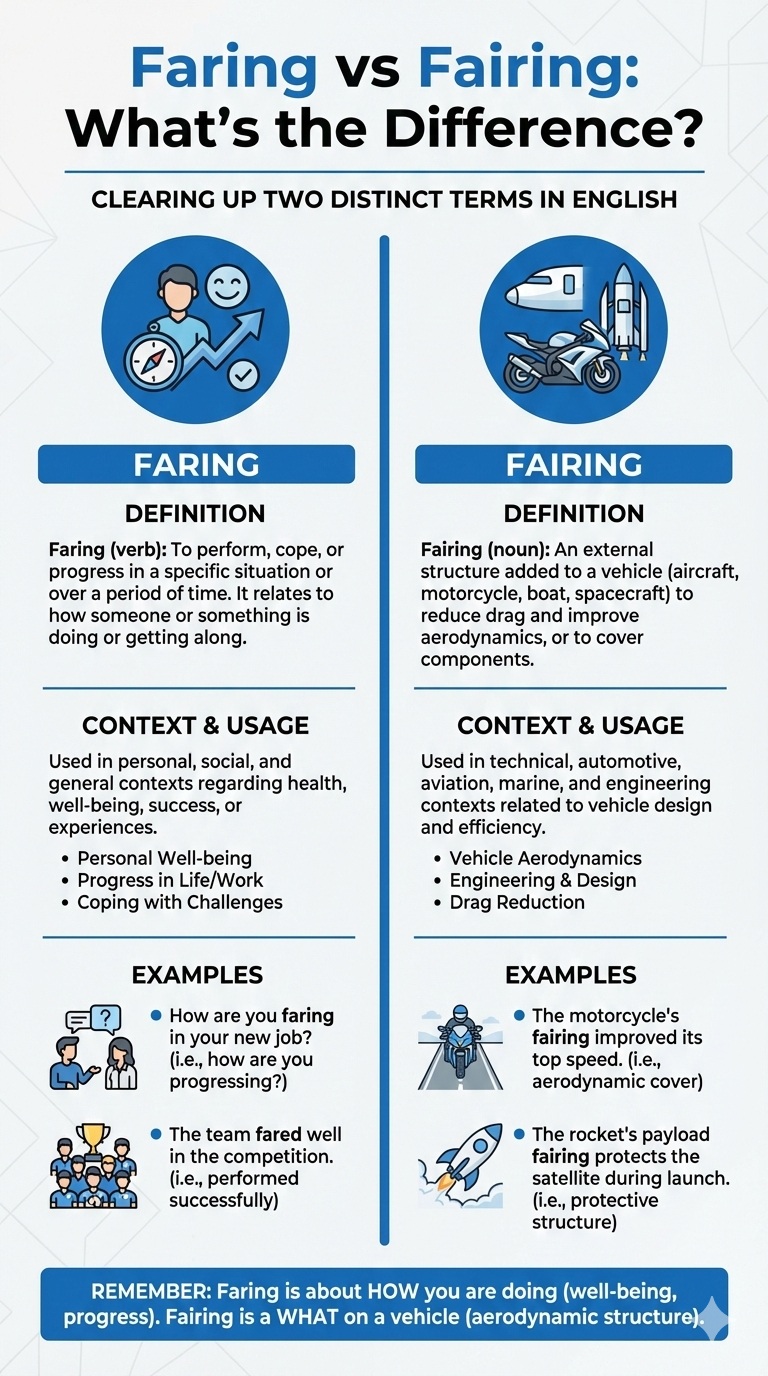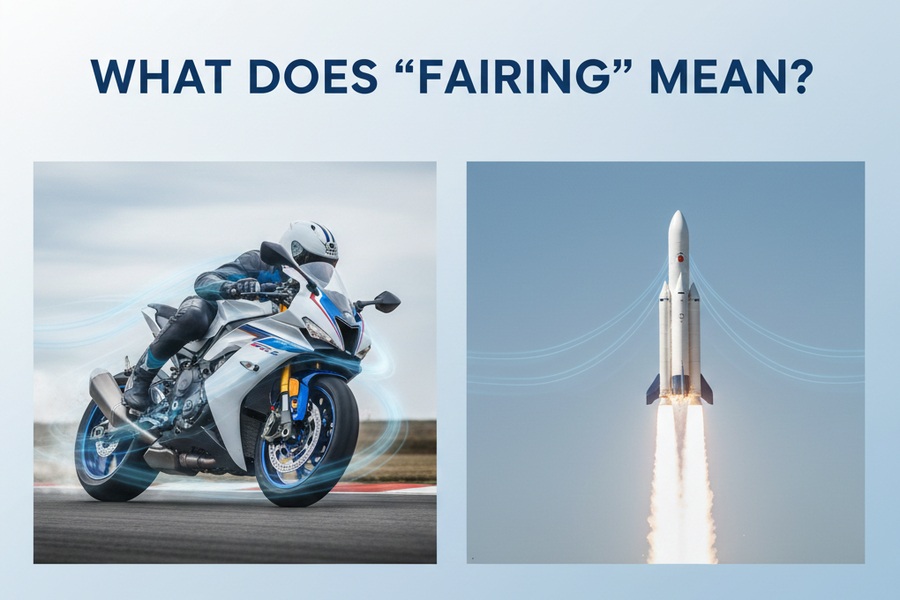If you are asking someone how they are doing, the correct phrase is:
How are you faring?
How are you fairing? is incorrect for this meaning.
Although the two words sound similar, faring and fairing have very different meanings and uses in English.

Quick Answer
- Use faring when you mean doing, coping, or progressing.
- Fairing is usually a technical term and is not used to ask about someone’s well-being.
Faring vs Fairing: Key Difference
| Word | Part of Speech | Meaning | Common Context |
| faring | verb (from fare) | how someone is doing or progressing | people, life, work, health |
| fairing | noun (most common) | a streamlined covering or smoothing structure | vehicles, engineering, design |
You might also enjoy:Which of the Following: Definition + Complete Usage + Grammar
When to Use “How Are You Faring?”
Use “How are you faring?” when you want to ask about someone’s situation, progress, or condition, especially in a specific context.
Examples:
- How are you faring in your new job?
- How are you faring after the surgery?
- How are your parents faring these days?
- Small businesses are faring better this year.
The verb fare means to get along, to succeed, or to be treated in a particular way, which is why faring works naturally in these sentences.
Is “How Are You Fairing?” Ever Correct?
No, not when you are asking how someone is doing.
Many learners confuse fairing with faring because they sound alike, but fairing does not mean “doing well” in standard modern English.
If you mean “How are you doing?”, choose:
- How are you faring? (more formal or serious)
- How are you doing? (most common)
- How’s it going? (informal)
You might also enjoy: Greatful or Grateful: Correct Spelling; 2025 Examples
What Does “Fairing” Mean?

Fairing is usually a technical word. It most often refers to a streamlined covering or panel designed to reduce air resistance or create a smooth shape, especially in vehicles.
Correct examples:
- The motorcycle has a front fairing to reduce wind resistance.
- The aircraft’s fairing improves aerodynamic efficiency.
Common Mistakes (Wrong vs Correct)
Wrong: How are you fairing these days?
Correct: How are you faring these days?
Wrong: The team is fairing well this season.
Correct: The team is faring well this season.
Correct use of fairing:
The bike’s fairing was damaged in the accident.
Mini Dialogues
A: How are you faring with the new workload?
B: Much better now. The first week was difficult.
A: How are your grandparents faring these days?
B: They are doing well, thank you.
You might also enjoy: Cancelled or Canceled;Spelling; Examples [2025]
Frequently Asked Questions
Is “How are you faring?” old-fashioned?
It sounds slightly formal, but it is still correct and commonly used, especially when talking about progress in a situation.
Can “fairing” ever mean “doing well”?
No. In modern English, fairing is not used to describe how someone is doing.
What is the simplest alternative to “How are you faring?”
“How are you doing?” or “How’s it going?”
Final Answer
To ask about someone’s well-being or progress, the correct form is:
How are you faring?
Use fairing only for technical or engineering meanings, not for asking how someone is doing.

Hi, welcome to my blog! My name is Omid and I am thrilled to have you here! I am an English language teacher with 12 years of experience and hold multiple international certifications (TESOL, IELTS, TOEFL, PTE, CELTA). Additionally, I hold a PhD in Applied Linguistics with a specialization in Teaching English as a Second Language (TESL), which fuels my passion for teaching English and assisting others in mastering the language. To me, nothing is more rewarding than helping individuals enhance their English language abilities through various methods. So, let’s embark on this journey of learning English together.




